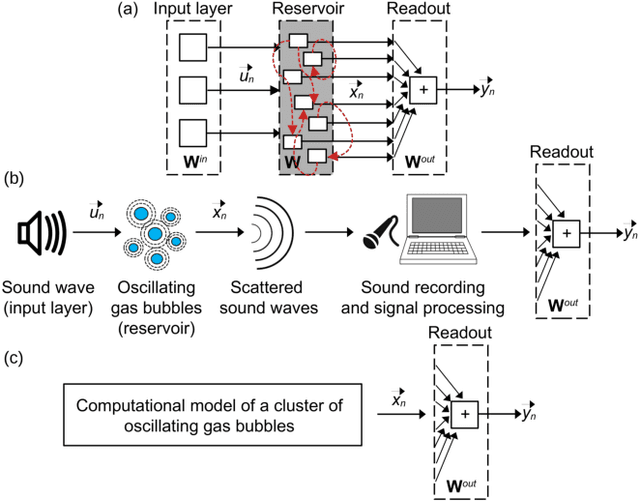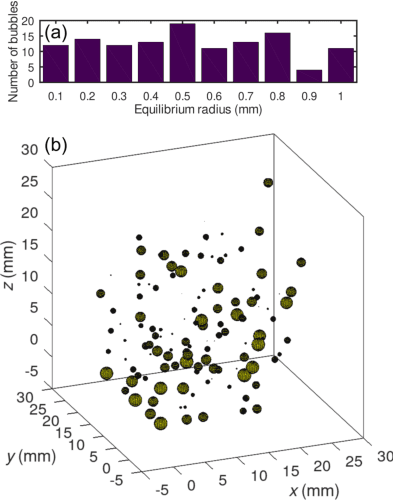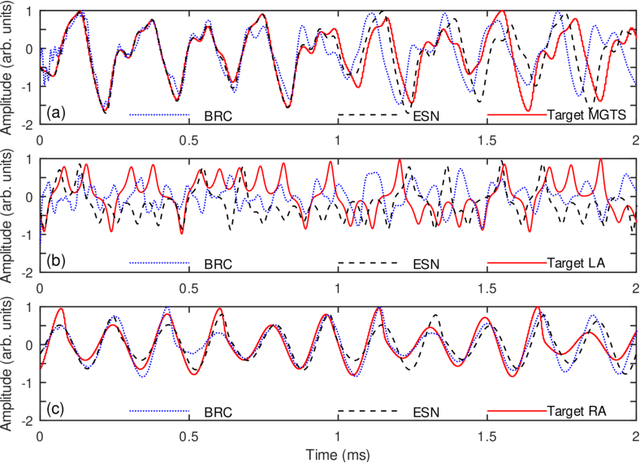Andrey Pototsky
Reservoir computing based on solitary-like waves dynamics of film flows: a proof of concept
Mar 03, 2023Abstract:Several theoretical works have shown that solitons -- waves that self-maintain constant shape and velocity as they propagate -- can be used as a physical computational reservoir, a concept where machine learning algorithms designed for digital computers are replaced by analog physical systems that exhibit nonlinear dynamical behaviour. Here we propose and experimentally validate a novel reservoir computing (RC) system that for the first time employs solitary-like (SL) waves propagating on the surface of a liquid film flowing over an inclined surface. We demonstrate the ability of the SL wave RC system (SLRC) to forecast chaotic time series and to successfully pass essential benchmark tests, including a memory capacity test and a Mackey-Glass model test.
Neural Echo State Network using oscillations of gas bubbles in water: Computational validation by Mackey-Glass time series forecasting
Dec 22, 2021


Abstract:Physical reservoir computing (RC) is a computational framework, where machine learning algorithms designed for digital computers are executed using analog computer-like nonlinear physical systems that can provide high computational power for predicting time-dependent quantities that can be found using nonlinear differential equations. Here we suggest an RC system that combines the nonlinearity of an acoustic response of a cluster of oscillating gas bubbles in water with a standard Echo State Network (ESN) algorithm that is well-suited to forecast nonlinear and chaotic time series. We computationally confirm the plausibility of the proposed RC system by demonstrating its ability to forecast a chaotic Mackey-Glass time series with the efficiency of ESN.
 Add to Chrome
Add to Chrome Add to Firefox
Add to Firefox Add to Edge
Add to Edge